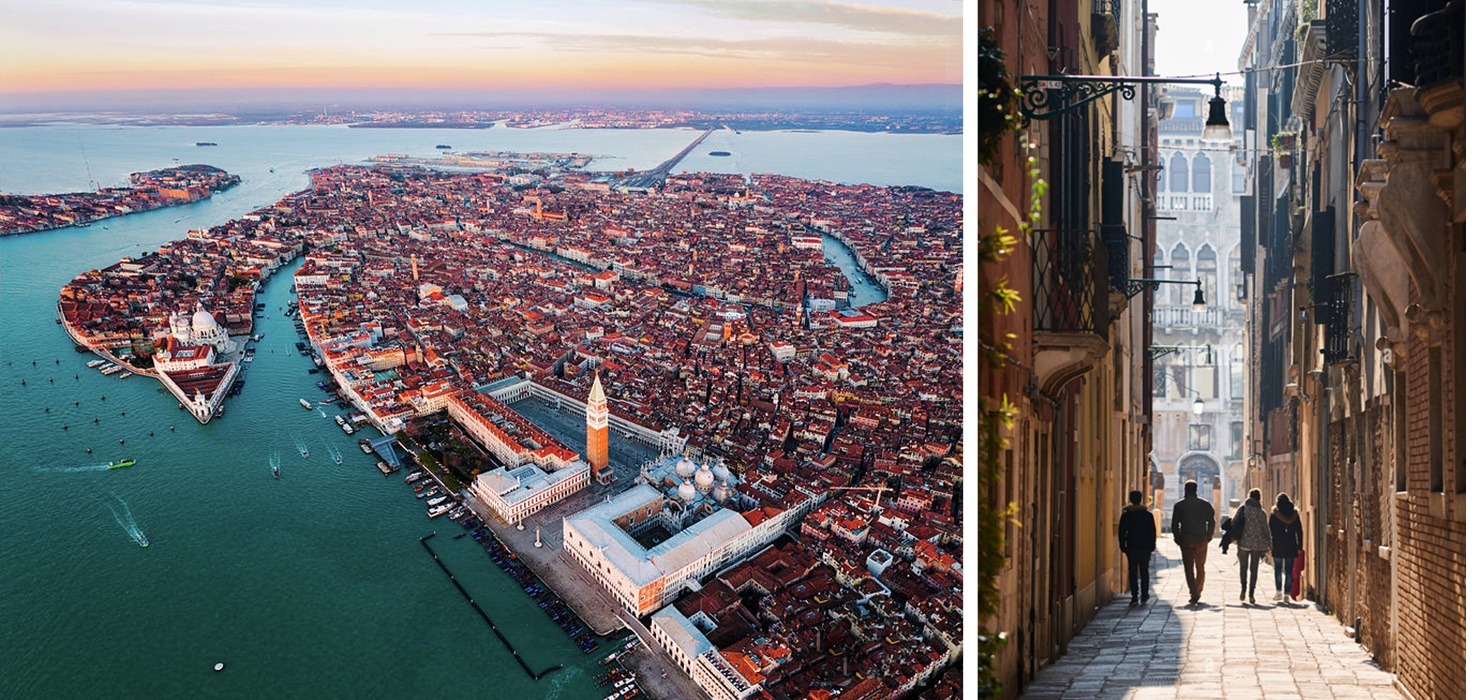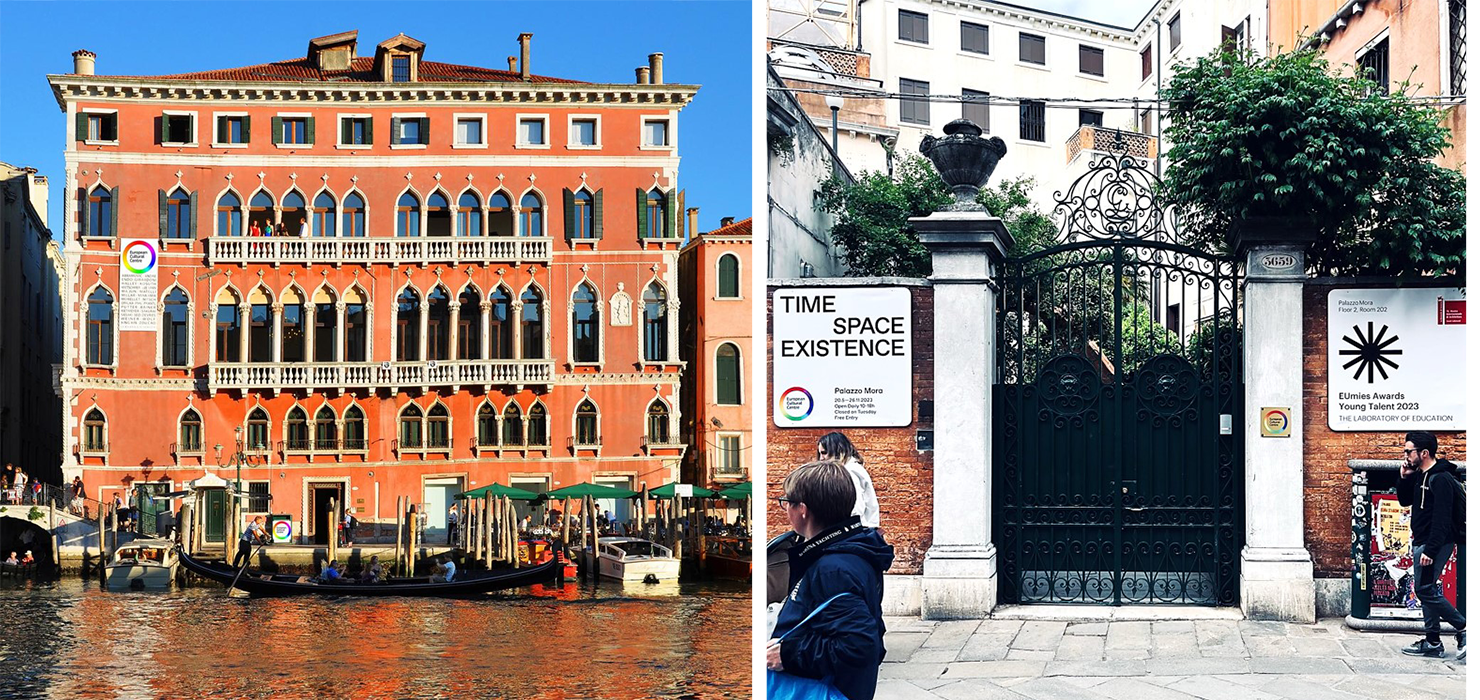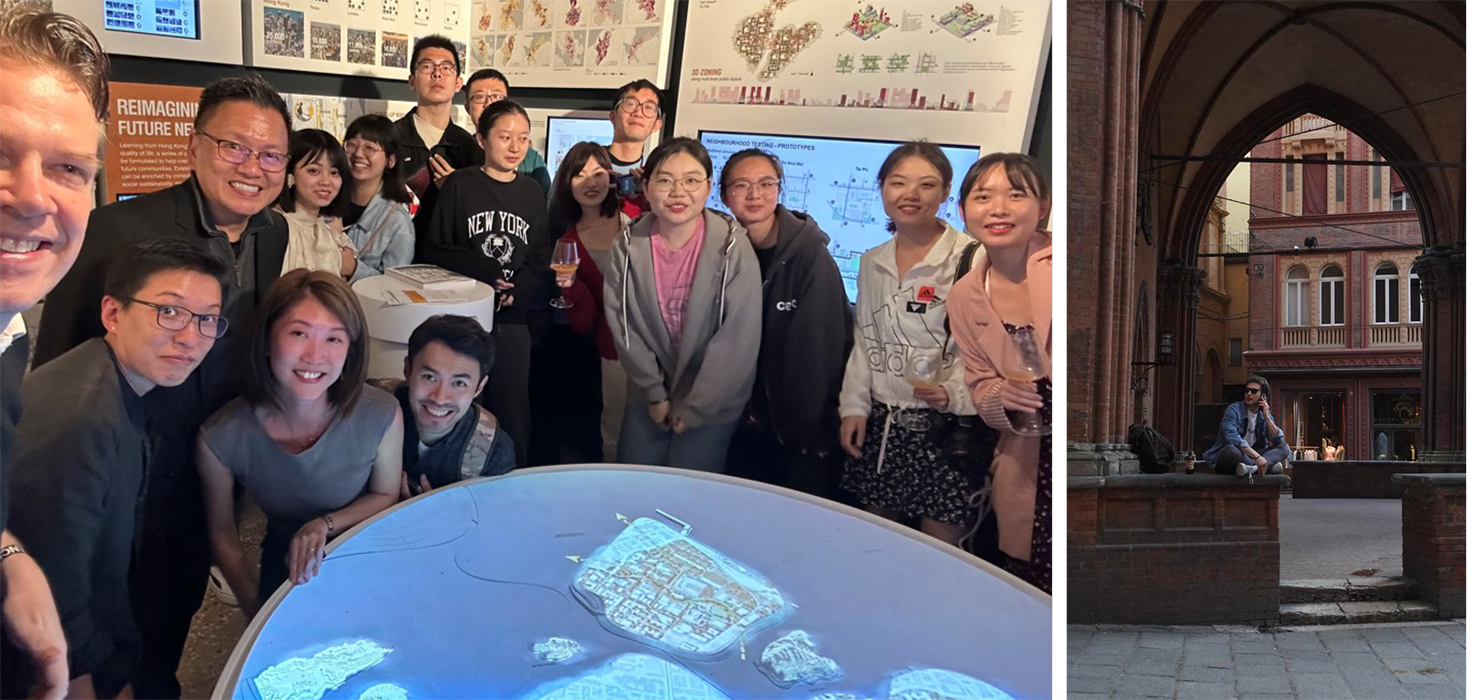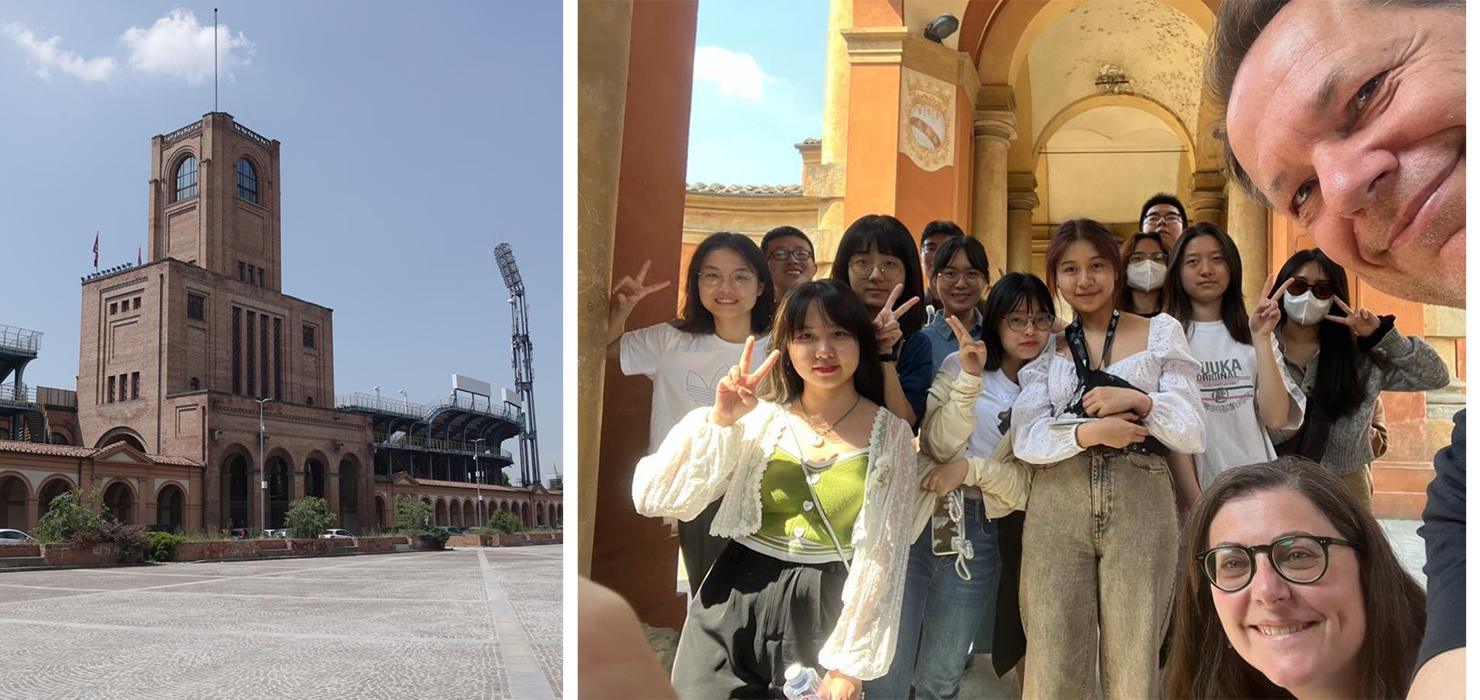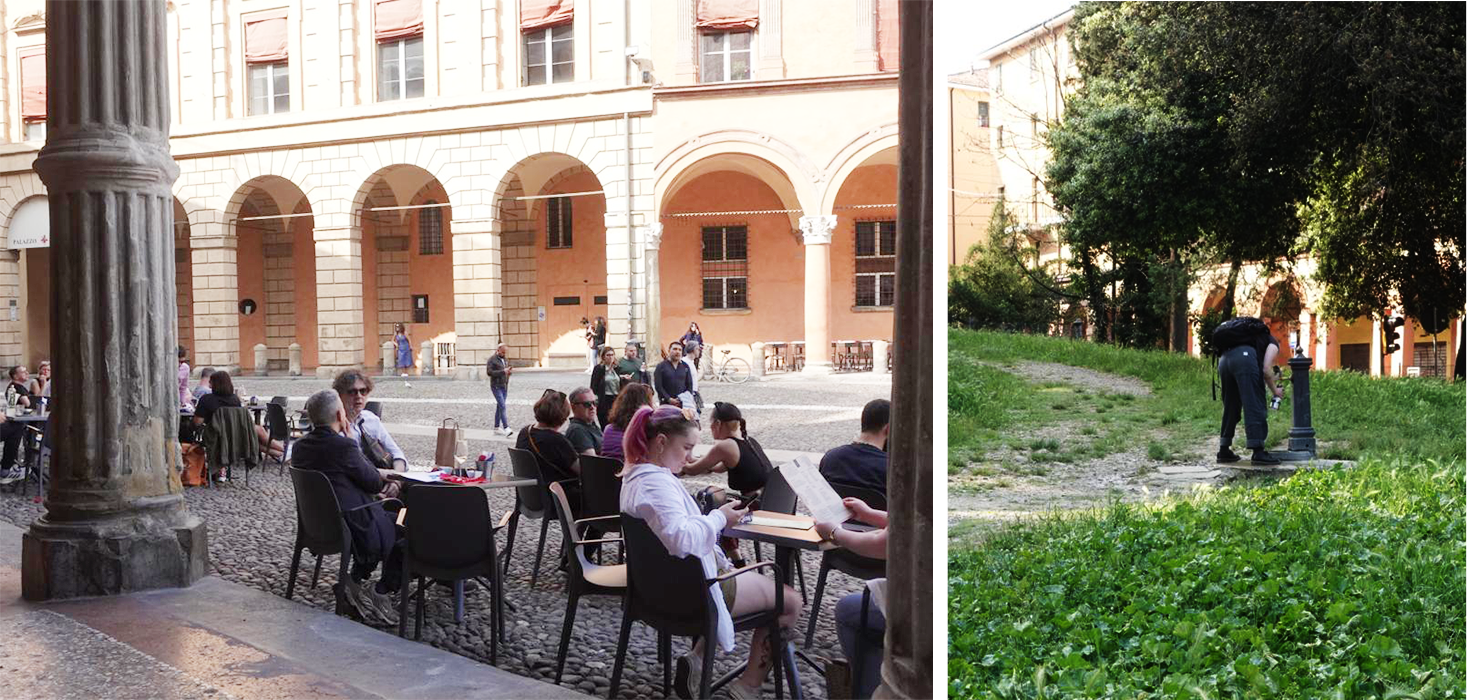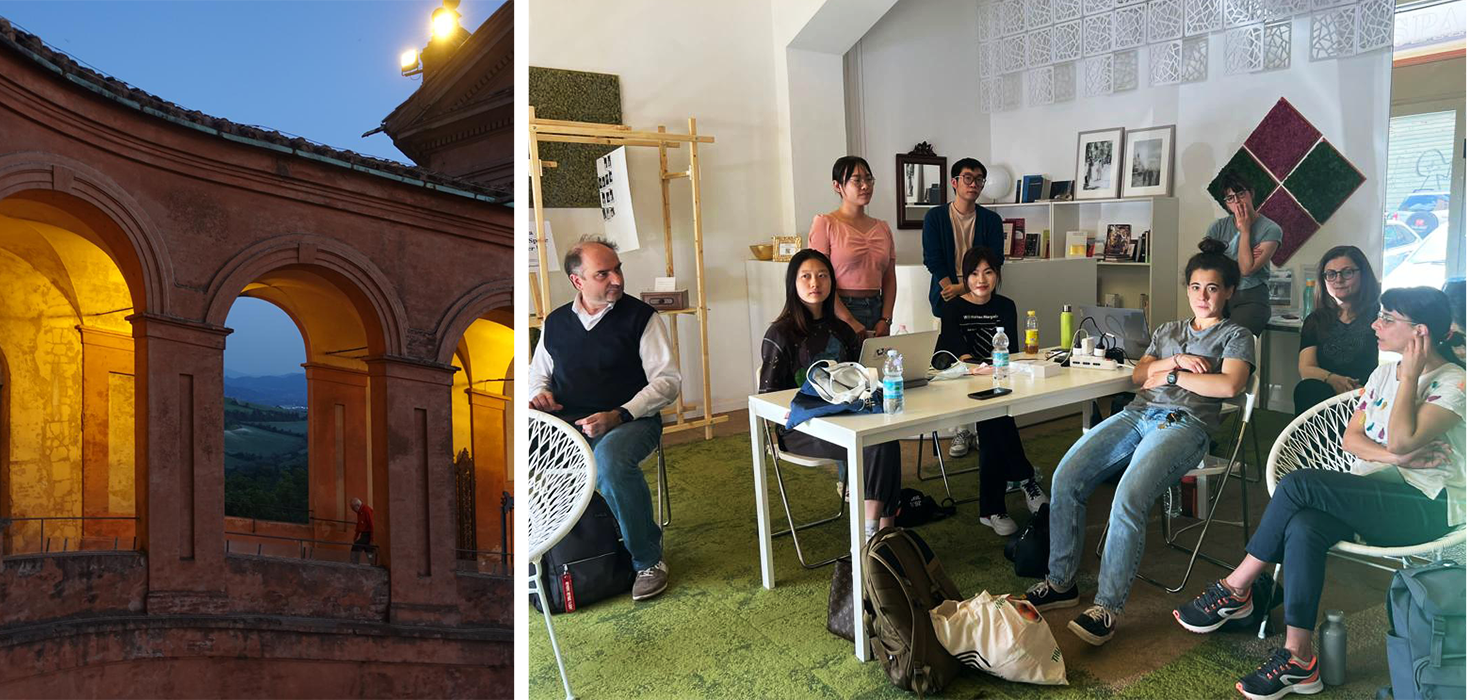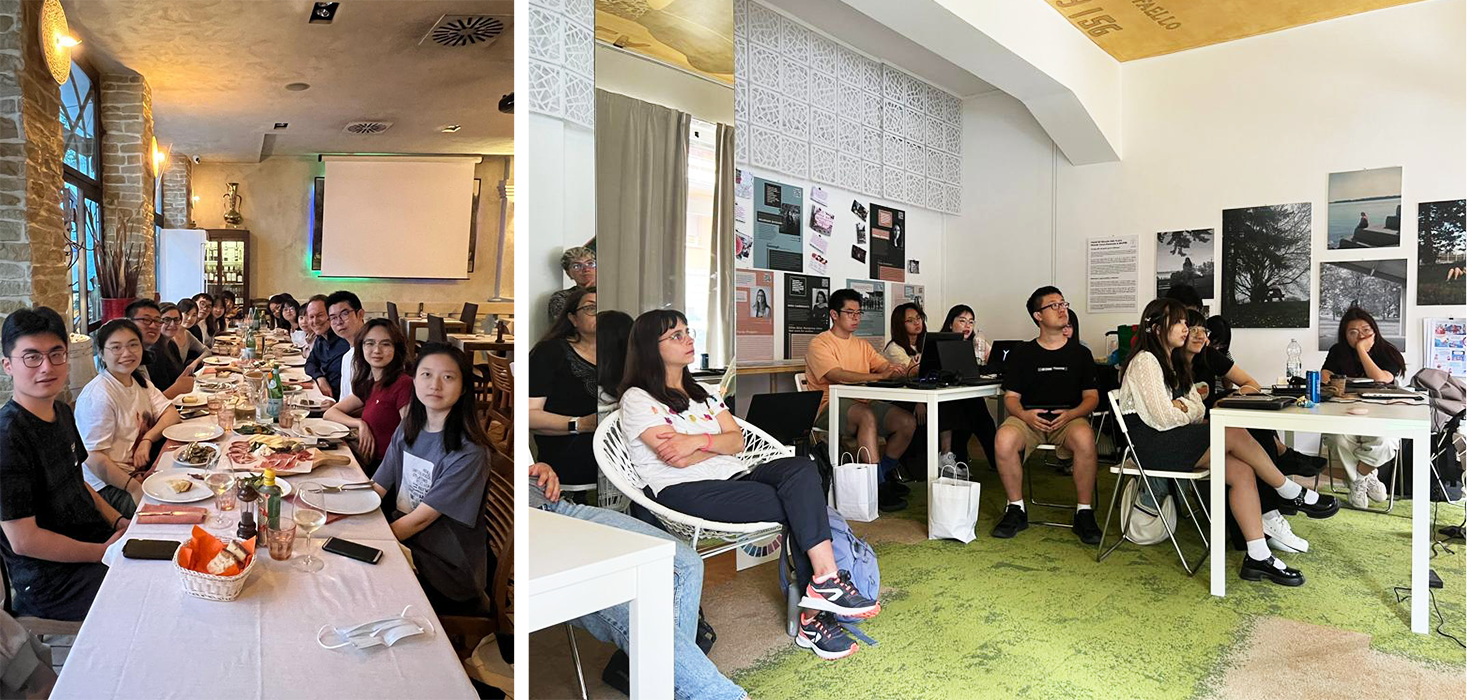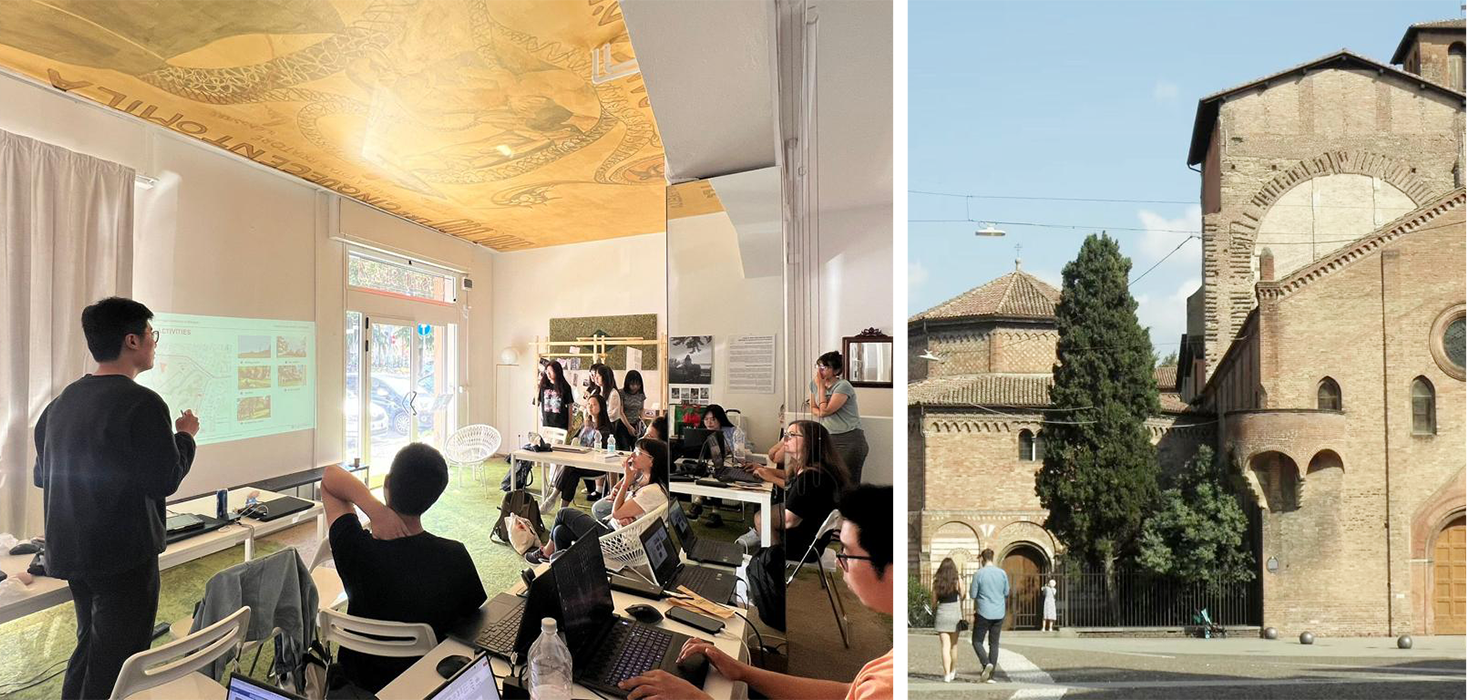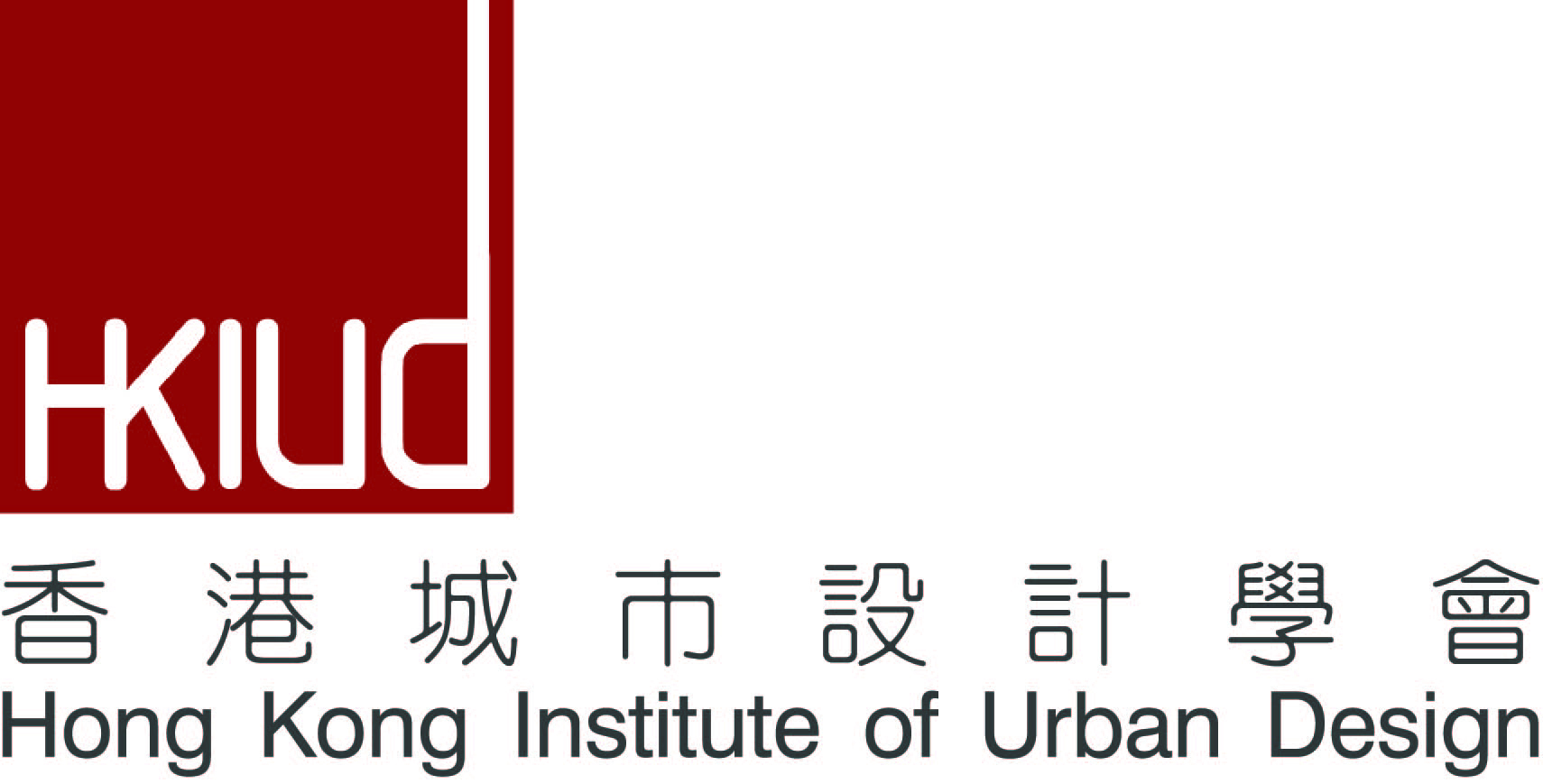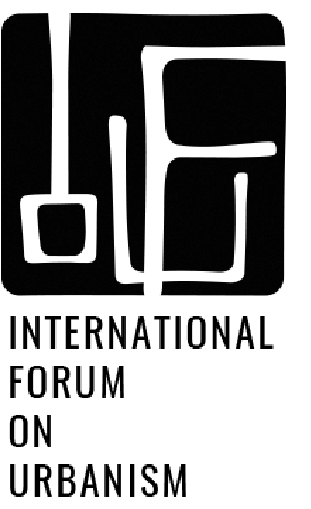Programme
Urban design plays a key role in creating liveable, sustainable and socially just cities. As one of the most dynamic and fascinating laboratories for contemporary urbanism, Hong Kong and the Greater Bay Area offer a wide range of challenges and opportunities.
Since 2021, the newly extended, 16-month programme starts with a design studio focusing on collaborative processes for the urban design of neighbourhood spaces. Through engagement with local stakeholders and communities, students will develop speculative proposals and small scale tactical interventions at real sites. The second studio will focus on larger scale urban challenges, developing comprehensive research and design projects around the notion of the “City within the City”. The thesis projects in the final term will further expand on this theme, using data-driven research methods or history, theory and case study analyses to formulate individual dissertations. Several of the programme’s teaching and learning activities will be organised in collaboration with international and local partners, including a new 2-month internship programme where students engage with Hong Kong’s urban design industry to gain experience with projects at a range of scales.
Study Scheme
Students are required to complete a minimum of 36 units of courses for graduation. Available and required courses are listed below.
Required courses: 27 units
Elective courses: 9 units
Y1 First Term:
• URBD 5710 Urban Design Studio 1 – 6 units (Required)
• URBD 5703 Urban History & Theory – 3 units (Required)
• URBD 5731 Urban Processes – 3 units
Y1 Second Term:
• URBD 5720 Urban Design Studio 2 – 6 units (Required)
• URBD 5702 Environmental and Urban Economics – 3 units (Required)
• URBD 5732 Urban Transport Networks – 3 units
Y1 Summer Term:
• URBD 5734 International Workshop – 3 units
• Internship programme (Non-credit bearing)
Y2 First Term:
• URBD 5704 Research methods in Urban Design – 3 units (Required)
• URBD 6701 Urban Design Thesis – 6 units (Required
• URBD 5735 Environmental Design for Liveable and Healthy Cities – 3 units
Full Course List:
– URBD5702 Environmental and Urban Economics – 3 units
– URBD5703 Urban History & Theory – 3 units
– URBD5704 Research methods in Urban Design – 3 units
– URBD5710 Urban Design Studio I – 6 units
– URBD5720 Urban Design Studio II – 6 units
– URBD5731 Topical Studies in Urban Design 1 – Urban Processes – 3 units
– URBD5732 Topical Studies in Urban Design 2 – Urban Transport Networks – 3 units
– URBD5733 Topical Studies in Urban Design 3 – Urban Management – 3 units
– URBD5734 Topical Studies in Urban Design 4 – International Workshop – 3 units
– URBD5735 Environmental Design for Liveable and Healthy Cities – 3 units
– URBD6701 Urban Design Thesis 6 units
– ARCH5731 Topical Studies in Urbanism 3 – units
Other Requirements
(a) Minimum cumulative GPA of 2.0.
(b) A student who obtains a cumulative grade point average (GPA) below 2.0 in the preceding term or receives a failure grade in thesis monitoring courses (for Research Postgraduate Programmes) will be put on academic probation. For details, please refer to Clause 14.0 “Unsatisfactory Performance and Discontinuation of Studies” of the General Regulations Governing Postgraduate Studies which can be accessed from the Graduate School Homepage: http://www.cuhk.edu.hk/gss.
Design Studios
The Urban Design Studios explore theories and methodologies around the conceptualisation and development of comprehensive urban design projects based on in-depth research. Continuing our research into the human-centric urban design processes for liveable, sustainable and healthy cities, we study the historic context, precedents and recent developments around the formation of self-sufficient neighbourhoods and communities, in relation to the practice of urban planning and design.
Studio 1: Urban Collaborative + Commons Studio:
‘Urban Design Strategies for Regenerative Neighborhoods’
The city-making process is often decided in the hands of a few, with a developmental mindset that prioritizes time and cost efficiency over people in global cities like Hong Kong. This approach has resulted in a top-down view of the city that celebrates grand architecture and infrastructure, while people and everyday life are often left out of the picture. This exclusive planning process has led to social issues such as weakened community ties and the misallocation of urban resources. As urban designers, positioned between the institution and the end-users, we have a chance rethink urban design in a bottom-up way that reconnects people to the city, and question how we can create strategies to influence stakeholders towards urban design that can impact all. How might we rethink our urban condition through ‘commons’ as the inspiration for collective action?
To address these questions, Studio 1 will focus on field work, community engagement, participatory design, and strategic urban design strategy for Tai Po, a town near the CUHK campus. Through engagement with key stakeholders from the community, private sector and government, the studio aims to rethink urban design starting from neighborhood scale, with Tai Po as the testing site to explore sustainable and regenerative design strategies. The goal is to re-strategize Tai Po’s position in relation to the Northern Metropolis and innovative developments along the Knowledge and Technology Eastern Corridor. Overall, the studio seeks to promote collective action by embracing the power of local intelligence and resilience, to rethink urban conditions through commons and create a more inclusive and sustainable urban environment.
Studio 2: The ‘New’ New Town:
Creating sustainable, liveable and supportive communities
The Urban Design Studio II explores theories and methodologies around the conceptualisation and development of comprehensive urban design projects based on in-depth research. Continuing our research agenda into the role of self-contained urban districts in response to global and local environmental challenges, we study the historic context, precedents and recent developments around the formation of supportive communities in relation to the practice of urban planning and design.
As we continue our research into the notion of The ‘New’ New Town, we analyse the tension between the need for large-scale planned urban developments, and the organic social and economic processes that lead to vibrant neighbourhoods and social resilience. For the research stage, we will engage with Hong Kong’s rich laboratory of satellite districts, as well as the ecological and regional opportunities found in the existing landscapes of the New Territories.
The design stage will focus on the ambitious ‘Northern Metropolis’ development area, a future urban region projected to house 2.5 million people. Within this area, we will explore the ecological, economical and social opportunities of a range of sites, as part of a wider development of the Greater Bay Area as a polycentric urban region. Informed by guest lectures and support from government and industry experts, we will explore new planning proposals for increased liveability, collaboration and innovation. Student-led research-by-design work, critical discussions and project narratives will reflect on urban theory and international precedents, and will lead to new visions for socially and environmentally sustainable urban design.
Thesis Studio: Self-Directed Urban Design Research
This course covers the general procedures of theoretical inquiry as it relates to urban design. For the thesis, students will develop their own research project and produce an intellectually rigorous piece of work. The topic will be defined in discussion with the instructors, and can be developed based on previous design studio I or II research.
The primary objective of the thesis work is to provide an opportunity for the student to conduct independent research and design work related to a specific interest in the field of Urban Design. The process involves formulating a relevant urban issue, defining researchable questions and developing solutions for the defined problems. Students will implement their knowledge and demonstrate an in-depth capacity to address challenges stemming from the complex ways in which cities function, grow and develop. The students will gain the professional and theoretical tools to conduct research as well as to strengthen their capabilities to support and inform design processes through research.
Previous Year’s Design Studios
2022-2023
2021-2022
2020-2021
2019-2020
2018-2019
2017-2018
2016-2017
2015-2016
2014-2015
2013-2014
2012-2013
Internship Programme
The internship programme is offered in the summer term to complement the course work. It allows students to gain experience in leading urban design firms in Hong Kong and link their academic research to issues with relevance in professional practice. Participation in the Internship Programme is on a voluntary basis.
Companies List 2023
– AD+RG
– Aecom
– ARUP
– BLEND
– CAN
– Chinachem Group
– Jason Hilgefort
– JC Disi
– OMA
– One Bite
– OVAL Partnership
– P&T Group
– SOM
International Workshop
As part of the MSUD programme, an international urban design workshop will be held in different locations around the world. The workshop will be organised with one of our international partner programmes, offering an opportunity to work with additional teachers from renowned institutions.
For May 2023, a study trip and workshop was planned to Venice and Bologna, Italy, in conjunction with our participation in the Venice Biennale exhibition programme. The exhibition was supported by AECOM and focused on the theme of ‘The ‘New’ New Town’.
Past study trips:
2023 – Venice + Bologna
2022 – Online – Hong Kong + New York + Rio de Janeiro
2021 – Online – Hong Kong + New York + Rio de Janeiro
2020 – Online – Hong Kong + New York
2019 – New York
2018 – Lisbon
2017 – Berlin
2017 – Macau
2016 – Berlin + Stuttgart
2014 – Taipei
2014 – Barcelona
2013 – Taipei
2013 – Vancouver + Seattle + Portland
Accrediting Organisations and Partner Institutions
The Master of Science in Urban Design programme of the School of Architecture at the Chinese University of Hong Kong has received accreditation from the Hong Kong Institute of Urban Design (HKIUD). The Hong Kong Institute of Urban Design (HKIUD) was established at June 2010 and is a group of professionals who aim at promoting urban design through accreditation, discussion and education.
The Master of Science in Urban Design programme of the School of Architecture at the Chinese University of Hong Kong has received “specialist” accreditation from the Royal Town Planning Institute (RTPI). RTPI is a leading membership organisation and a Chartered Institute responsible for maintaining professional standards and accrediting world class planning courses nationally and internationally.
Established in 2004, the International Forum on Urbanism (IFoU) (www.ifou.org) is a network of 23 distinguished universities, research institutes and knowledge centres across Asia, Europe and South America, with the task to strengthen the international collaboration in the field of Urbanism. The Chinese University of Hong Kong (CUHK) and the IFoU jointly organized the 10th conference of the International Forum on Urbanism and workshops such as IFoU 2013 Winter School.
About us
Launched in 2012, the M.Sc. in Urban Design programme of the School of Architecture at the Chinese University of Hong Kong aims to prepare committed designers to engage with these challenges. Through a multidisciplinary combination of design studios and focused modules, students develop design skills while integrating new knowledge about essential areas for urban design, such as community participation, ecosystems and transport networks.
Admission
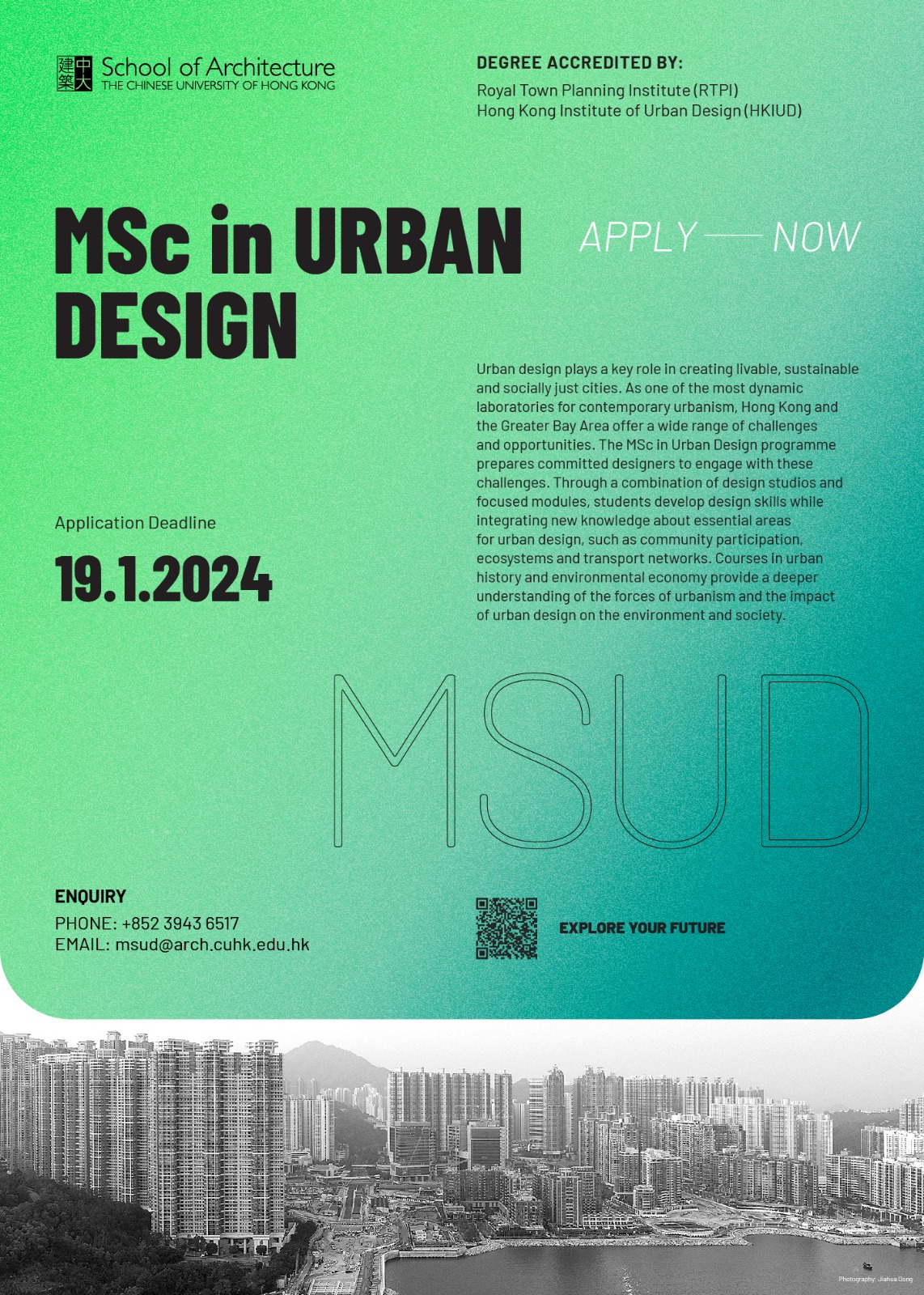
About us
Ms. Sindy Tang
Tel. +852 3943 6517
Fax. +852 3942 0982
sindytang@cuhk.edu.hk
http://www.arch.cuhk.edu.hk
